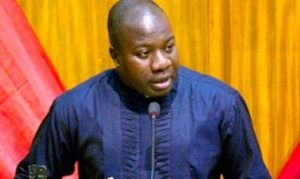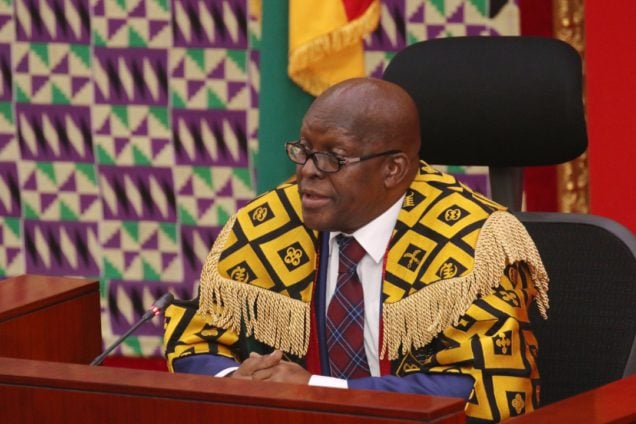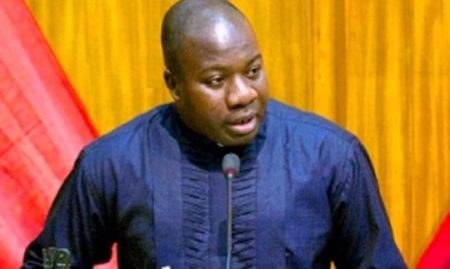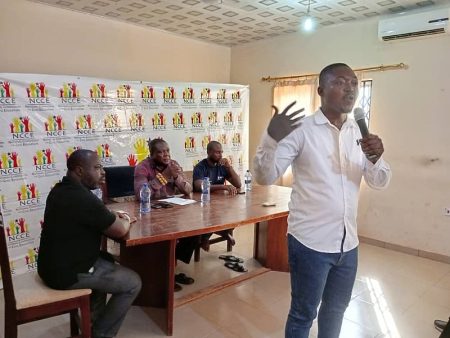In a recent address at the commissioning of the Job 600 building in Accra, Speaker of Parliament Alban Bagbin underscored the pivotal role that Parliament plays in the framework of democratic governance. He articulated that Parliament is not merely a body that enacts laws but also functions as the “mirror of democracy.” This metaphor captures the essence of Parliament’s responsibilities, which extend beyond mere legislation to encompass rigorous oversight of governance. Bagbin emphasized the importance of strengthening this vital institution to ensure that the democratic system effectively serves all citizens. His remarks reflect a deep understanding that democracy thrives not only through laws but also through the institutions responsible for monitoring their implementation and addressing the needs of the populace.
Bagbin outlined the unique responsibilities that Parliament holds within Ghana’s governance system. He insisted that for the people to truly reap the benefits of democratic governance, it is essential to reinforce the strength and capabilities of Parliament. He stated, “If the people are to benefit from democratic governance, it is the Parliament—which is the mirror of democracy that is the focus—that should be strengthened.” This highlights the idea that a well-functioning Parliament is crucial for translating the ideals of democracy into tangible outcomes. He pointed out that as the only body charged with the function of oversight, Parliament is responsible for ensuring that resources, energies, and trust invested in governance serve the public good effectively.
Throughout his address, Speaker Bagbin also emphasized the collaborative responsibility of empowering Parliament. He asserted that this duty does not rest solely with the members of Parliament but extends to all citizens of Ghana. By calling for a collective effort, Bagbin is advocating for a shared commitment among the populace to strengthen the legislative body and, by extension, the democratic system. This plea for unity highlights a fundamental principle of democracy: that the active participation of citizens is essential for the proper functioning of governmental institutions.
Furthermore, Bagbin warned against the complacency that can sometimes accompany democratic engagement. He mentioned the importance of making citizens feel that their contributions—be it efforts, resources, or voting actions—are not in vain. He pointedly remarked, “Strengthening Parliament is not just the duty of Parliament, but of everybody.” This statement acknowledges the interconnectedness between the people and their representatives, illustrating that a vibrant democracy relies on both an empowered Parliament and an engaged citizenry.
In his address, he called for a shift in perspective among Ghanaians regarding their relationship with Parliament. By emphasizing the need for citizens to take an active role in the legislative process, Bagbin is advocating for more transparency and accountability within the institution. His assertion that strengthening Parliament requires collective action serves as a reminder that the effectiveness of democracy is also dependent on the willingness of citizens to hold their representatives accountable and to engage in meaningful ways with the legislative process.
Overall, Speaker Alban Bagbin’s remarks serve as a clarion call for the reinforcement of parliamentary functions in Ghana, highlighting its significance as a foundation of democratic governance. By insisting that both representatives and the public share the responsibility of empowering Parliament, Bagbin underscores a crucial tenet of democracy: that it is not only what is done within the chambers of Parliament that matters, but also how citizens engage with and support these democratic institutions. The future of Ghana’s democracy, as articulated in Bagbin’s address, rests on a collaborative commitment to making Parliament a more effective, accountable, and responsive body.














